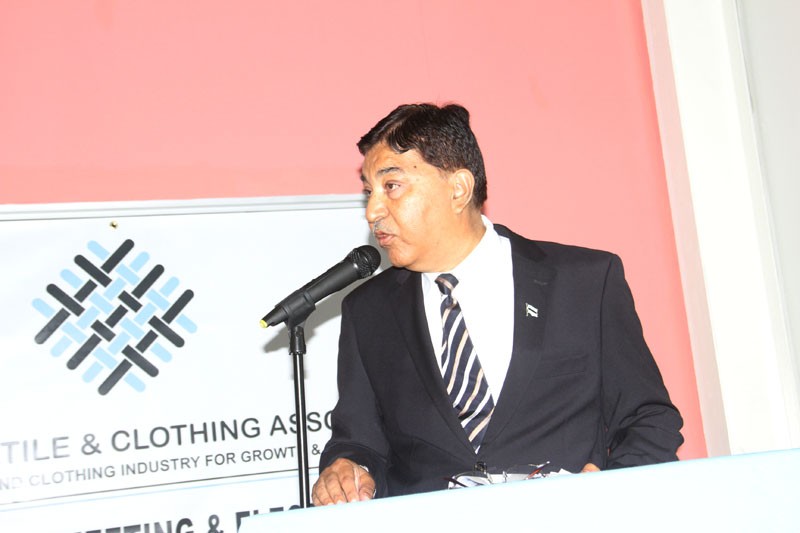Troubled textile industry appeals for export incentives
Isaac Pinielo | Wednesday November 23, 2016 18:00


The measures hoped for include action on export incentives, tendering system and release of permits for skilled foreign workers, amongst others.
Participants at the meeting indicated that the future of the embattled industry hangs in the balance if no action is taken to address the challenges bedevilling this sector.
According to Botswana Textile and Clothing Association (BTCA) president, Mohammad Shahid Ghafoor the textile sector can play a pivotal role in diversifying the economy ensuring that the country relies less on minerals.
He said the industry has traditionally been a large employer, adding that the need for both skilled and unskilled labour is always high. Ghafoor pleaded with government to re-introduce production based incentives, which he said will help the industry become competitive as it faces high utility costs, low productivity, lack of skilled labour and extra logistical expenses which increase the cost of their finished goods.
“We understand that direct subsidy to operational cost is against the World Trade Organisation (WTO) rules but we are sure that the ministry can work out some production and performance-based incentives,” he said.
He also noted that local companies that were exporting to the US under the African Growth and Opportunity Act (AGOA) were receiving support from the government in the form of duty credit certificates, which have since been stopped.
He decried the high cost of logistics, stating that being in a landlocked country, the companies have to incur extra costs to import raw materials from overseas and export the finished products from a port in South Africa or Namibia.
“Our government has invested millions of Pula in developing a dry port in Walvis Bay and our companies have not yet been able to take advantage of this facility,” he said.
He said although the challenges are many, the textile sector has the potential for increased employment and foreign exchange earnings through regional and international trade.
“We are sure that this number can increase if the ministry can look into assisting the textile and clothing companies by introducing some export incentives again,” said Ghafoor, who is also the managing director of Western Apparels.
He pointed out that the recent extension of AGOA beyond 2015 could help this sector sustain employment. Macdonald Peloetletse of Marine Garments decried the delays in the public procurement process saying they disadvantage them as they end up incurring costs when tendering.
“The tendering system should be improved since it puts most of us at a disadvantage and it also opens room for corruption as some people would want to pay briberies,” he said.
In response, the director of Economic Diversification Drive (EDD), Neo Mahube said she had taken heed of the challenges that the garment traders aired. the ailing industry.
“We will address some of these issues as we will be meeting with procuring entities in the near future,” she said.
